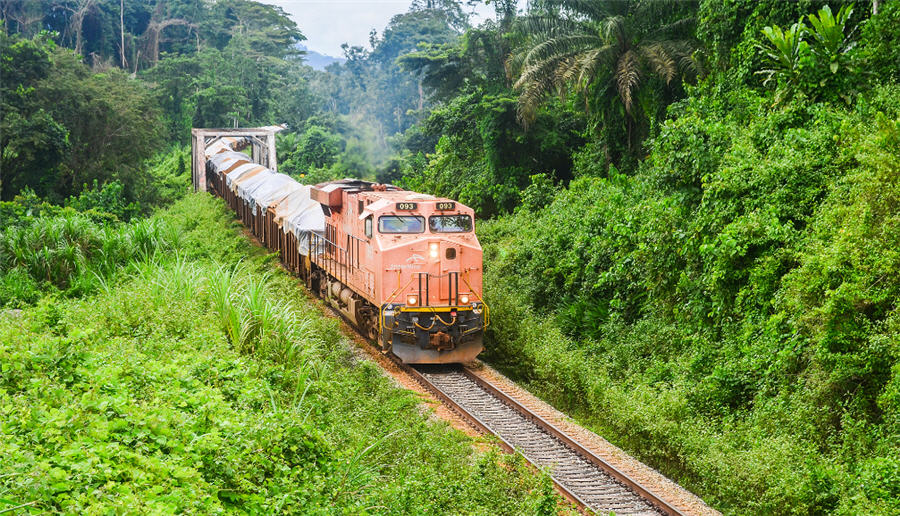Guinea iron ore prospectors set sights on ArcelorMittal rail

The race to mine Guinea’s iron ore has started although the focus is not on its giant Simandou deposits but on smaller finds whose output could be transported via Liberia if ArcelorMittal shares its railway, banking and industry sources said.
Guinea’s aspirations to develop Simandou, the world’s largest known untapped iron ore deposit, have foundered because of the cost of infrastructure and protracted legal disputes.
Guinea says it is still trying to reach a deal with China to build the roughly 650 km (406 miles) of railway needed to transport the iron ore through Guinea.
Guinea’s aspirations to develop Simandou, the world’s largest known untapped iron ore deposit, have foundered because of the cost of infrastructure and protracted legal disputes
In the interim, the government has signed economic cooperation deals with Liberia, which would allow iron ore to be transported from Guinea’s smaller Zogota project along a railway through the neighbouring West African nation.
Zogota is being developed by former Xstrata boss Mick Davis, who wants to relaunch his mining career and says he has clinched an outline government accord on Liberian shipment.
Davis, also chief executive of Britain’s ruling Conservative Party, said the aim was to complete a feasibility study within six months and bring the project rapidly into production.
Elsewhere, BHP, together with Newmont , holds Guinea’s Mount Nimba deposit. However, BHP says the Nimba deposit does not fit with its focus on assets in stable, developed countries.
HPX, a privately-owned U.S. corporation, led by mining billionaire Robert Friedland, had been interested in acquiring a stake, industry and banking sources said, but a deal has yet to be signed.
A BHP spokesman said he could not comment. A spokesman for Friedland also declined to comment. Newmont was not immediately available for comment and neither was Davis’ firm Niron.
Both Nimba and Zogota would need to reach agreement with ArcelorMittal, the sole rail concession holder in Liberia, to convince it to allow them to use its infrastructure.
Investment in road and port improvements could also be required.
ArcelorMittal said in an emailed statement that its mining agreement allowed third parties access to its railway if that did not “unreasonably interfere with ArcelorMittal’s operation and thereby revenue flow for the people of Liberia”.
But it said its main aim was to boost its Liberian production.
In a text message, Guinean Mining Minister Abdoulaye Mgassouba said the country’s aim was that “all the projects to exploit iron ore are developed in a way to give Guinea a presence on the market and to get the full benefit of its potential”.
(By Barbara Lewis, Joe Bavier, Saliou Samb and Nichola Saminather; Editing by Edmund Blair)
{{ commodity.name }}
{{ post.title }}
{{ post.date }}




Comments